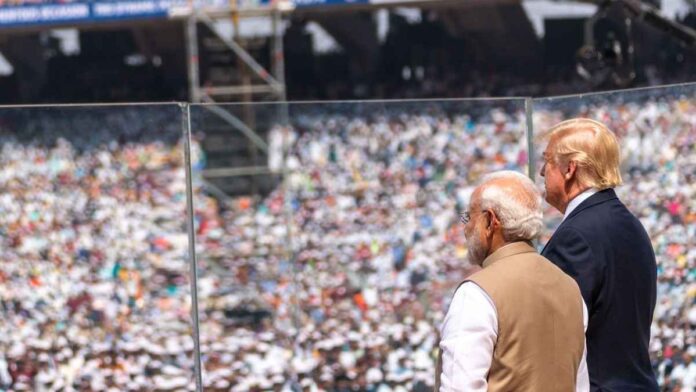UNITED STATES: For decades, the Indian diaspora in the United States has been celebrated as a “model minority.” Hardworking, law-abiding, and deeply rooted in education and enterprise, they quietly built a reputation for integrity and success. Today, they are among the wealthiest ethnic groups in America, commanding influence not only in business and academia but increasingly in politics and culture.
This journey of soft power was not sudden, it was forged in the cubicles of Silicon Valley, in the wards of American hospitals, in the classrooms of elite universities. Indians did not lobby aggressively for global recognition; their sheer work ethic spoke louder than any slogans. Their quiet rise became India’s most enduring export story, brains without borders.
Also Read: Pankaj Ingole Proves Small-Town Dreams Can Make Big Headlines
From Quiet Power to Global Spotlight
That narrative changed when India’s leadership decided to put the diaspora in the global spotlight. Mega shows in venues like Madison Square Garden and Houston showcased the community not just as successful immigrants, but as wealthy and powerful players in American politics. “Agli Baar Trump Sarkaar,” a slogan shouted in front of thousands, blurred the lines of diplomatic protocol. For the first time, the diaspora seemed less like a bridge between nations and more like a political bloc leaning toward one U.S. presidential candidate.
What was once soft power rooted in humility turned into a spectacle of political endorsement – something the U.S. political establishment does not easily forget.
The Indian Faces of American Tech
At the same time, Indian-born leaders began taking the reins of America’s most powerful tech companies, Google, Microsoft, IBM, Adobe. In India, they are celebrated like national heroes, even though their loyalties, citizenship, and responsibilities are firmly American. Their achievements are a testament to Indian talent, but they are also a reminder that these individuals now serve U.S. corporate and shareholder interests.
Also Read: Education in Transition: How Spain is Shaping the Future of Learning
The Deafening Silence on Tariffs
Now, as the U.S. slaps tariffs on Indian goods, one must ask: where are the voices of support from this so-called “most influential diaspora”? Where are the statements, the lobbying, the gestures of solidarity? The bonhomie of stadiums filled with cheering crowds for visiting American presidents now seems like a distant memory.
India rolled out the red carpet, filled entire stadiums to welcome Donald Trump, projecting an image of unshakeable friendship, even as the pandemic quietly approached. Yet, when it comes to the harsh reality of tariffs hurting Indian exports, that celebrated “personal rapport” has failed to translate into tangible support.
Lessons in Soft Power and Realpolitik
The silence is not accidental. It reflects the diaspora’s careful calibration of interests – they are American citizens first, Indians by heritage. Their silence also underscores a sobering truth: soft power, however dazzling, cannot substitute for hard negotiations, aligned economic interests, or consistent diplomatic strategy.
India must reflect on whether the shift from silent strength to loud political spectacle truly served its interests. Soft power is most effective when it is understated and authentic. When turned into a stage-managed show of wealth and influence, it risks losing credibility in the very moments it is most needed.
The tariffs are not just a trade issue they are a reality check. The diaspora remains a valuable bridge, but it is not India’s diplomatic shield. Nations act on interests, not sentiment, and communities abroad act in alignment with their adopted homeland.
For India, the lesson is clear: respect the quiet power of its diaspora, but never mistake applause in a foreign stadium for actual leverage when the rules of global trade come into play.
